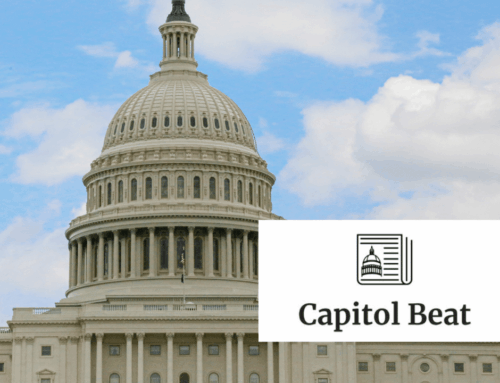Volume XIX No. 1
For months agriculture special interests and farm bill apologists stoked fears of a January 1st dairy cliff. Consumers were told: unless a new trillion dollar farm bill is passed, when the clock strikes midnight, milk prices will skyrocket to $8 per gallon. Yet here we are in 2014, the ball dropped in Times Square and at the dairy case nothing’s changed. That’s because while the calendar has turned over to a new year, special interest cynicism continues.
It’s déjà vu all over again. As we said last year, there’s little chance the U.S. Department of Agriculture (USDA) will implement permanent 1930s and 1940s law—which direct the government to set the price of milk artificially high—anytime soon. Rather, as USDA Secretary Tom Vilsack said a few weeks ago, his agency would “take some time… to get it implemented.” If it becomes apparent that Agriculture Committee conferees cannot come to an agreement on a new trillion dollar farm bill before the end of January, then Vilsack says, “it is our responsibility under the law to institute those [outdated dairy price support] programs.”
Like the extra pounds many Americans will try to lose in 2014, the farm subsidy apologists have trouble shedding dead weight. They’re not shy about the real reason 80-year-old permanent law is kept on the books every time a new farm bill is passed. As Representative Mike Conaway (R-TX), Chairman of the House Agriculture Subcommittee in charge of sending billions in subsidy checks to big agribusiness every year, reveals, “It's applying pressure to me…That's the whole advantage of having permanent law that's as bad as it is: to try to get folks to create the new law that we need for the next five years.” In other words, Rep. Conaway is saying that they whip out the dairy cudgel just to force through a nearly $1 trillion bill packed with unnecessary spending and special interest giveaways. Dairy cliff brinksmanship and the permanent law bogeyman didn’t fool us last year, and it won’t fool us now.
This self-induced dairy dilemma is just one of the richest examples of what’s wrong with Washington. Instead of leading the charge to right our fiscal ship, Congressmen jealously guard every program under their purview and demand sacrifice start somewhere else. Instead of repealing outdated laws that are harmful to taxpayers, consumers, and businesses, Congressmen and political appointees routinely “suspend” the laws, hoping that the threat of economic havoc will allow them to ransom new special interest spending that wouldn’t survive on its own merits.
This budget busting cynical ploy is most grating when used by the Agriculture Committees because not even the fairy tale “dairy cliff” can change the facts:
· The agriculture sector has plenty to be thankful for this holiday season – several years of record profits topped off with an expected $131 billion in net farm income in 2013.
· 2013 House- and Senate-passed farm bills would fail to save taxpayers more than pennies on the dollar, spending nearly 50 percent more than the last farm bill in 2008.
· Because the last two farm bills came in more than $400 billion over budget, there’s a good chance a supposedly $1 trillion farm bill could easily cost taxpayers $1.5 trillion when all is said and done.
· While last year’s House- and Senate-passed farm bills would finally eliminate the outdated and wasteful direct payment program, something on which nearly everyone agrees, they would squander savings on new income entitlement programs for the largest producers instead of paying down our $17 trillion national debt.
Congress should prioritize a litany of New Year’s resolutions this year, including comprehensive tax reform, real deficit reduction, smart immigration reform, and responsible transportation and Corps of Engineers authorizing bills. But first, they should resolve to make government work by ending the legislative cynicism. First on deck should be passage of a short-term farm bill extension that finally eliminates direct payments and other unnecessary subsidies. Then, lawmakers can buy time to create a more cost-effective, accountable, transparent, and responsive safety net that is reflective of today’s modern farming practices not the wish list of lobbyists. Even though lawmakers don’t have much to show for last year, we must hold out hope that 362 days from now, the 113th Congress will have redeemed itself and not go down as one of the most unproductive in U.S. history.










